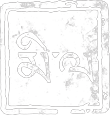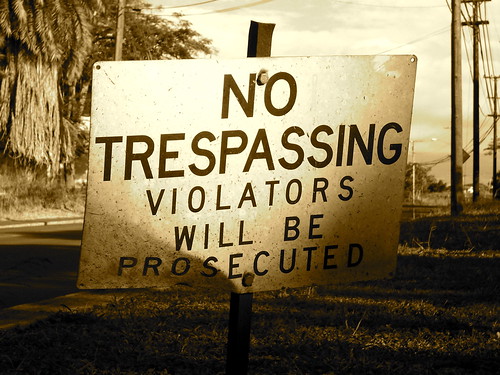Perhaps my practice is preparing me for what has been hiding within my memory for so long.
The Original Mistake
/ / Cambridge, Massachusetts
At the Dzogchen sitting last night, Lama John (Makransky) talked about feelings. Specifically, he discussed the original ‘feeling tones’ – pleasant, unpleasant, and neutral – that arise in response to stimulus. According to Buddhist psychology, our mind reacts to these basic tones by associating more complex emotions with the experience.
For example, when we hear someone loudly and prolongedly honking their car horn, or when a car alarm goes off at 3 a.m. and keeps going endlessly, we first hear the sound. Almost simultaneously, our mind associates a feeling tone – aversion – to the sound. At this point, all we know is that we don’t want the sound any more.
A lifetime of conditioning, and common human psychological & biological behaviors (and perhaps more cosmological interpretations of karma) factor in the next step of response: we interpret the sound itself as offensive, irritating, and rude. We may transfer that interpretation onto the person honking the horn, or the owner of the wailing car, but the effect is the same. An emotion such as anger or frustration arises.
(The difference between a feeling and an emotion is simple: a feeling is the most basic of tones, similar to C-flat, C, or C-sharp. An emotion is a feeling associated with and energized by thoughts, more like a chord of notes.)
Again, our karmic and/or natural conditioning affects the next step, deciding whether or not we express our emotions in action.
- Stimulus and Feeling Tone precede…
- Interpretation, which precedes…
- Emotion, which precedes…
- Expression in Action
The original mistake in this process is associating our resulting emotion with the original stimulus, when in fact our interpretations, our resulting emotional response, and our resulting expression of these emotions all occur due to our conditioning. In Tibetan Buddhism, our karma or conditioning is the substantial cause of our reactions to our experiences.
Our experiences themselves, which trigger our reactions, are merely environmental or direct causes. Our mistake is in blaming or crediting the experience itself for creating the emotion within us. The sound of the horn possesses no inherent quality to annoy, much as we might like to think so.
This same process happens when we fall in love. We begin to associate very good feelings with a certain person; and then we believe that they are the providers of these good feelings. In reality, the people we love are the providers of experiences we interpret as enjoyable. My own experience has taught me that sometimes we interpret the same experience (for example, a girlfriend’s style of humor) as intensely cute and endearing.. and yet sometimes as incredibly annoying. Lama John noted that when we believe that people are the source of these good or bad emotions, we turn them into objects to be used or discarded, rather than understanding them as whole beings.
That struck me, shook me. My mind had been racing in the other direction, thinking, “if we don’t credit people for helping us feel good, how do we feel gratitude? Don’t they deserve to be given that credit?” But what happens when we begin to believe a person is the source of our good emotions? We attach to them. We encourage them to provide more and more pleasure. We want to minimize and scour out what we regard as unpleasant in them. Instead of accepting a person as a whole being, we use and manipulate them to provide more and more pleasant emotions.
On the other hand, understanding that we are the causes of our own emotions frees us to relate to others with great clarity, to begin to understand where we respond to actual harm and where we respond to our own conditioning.
Lama John described this as a mistake we make thousands of times a day, consistently and continually associating our emotions with their direct causes and not realizing the substantial, actual causes of our emotions and actions. While listening to him, I began to realize the scale of this mistake.
From the instant, as a child, that I began to believe in the dichotomy of Self and Other (obviously, not in such terms), I have been repeatedly making that mistake, repeatedly associating experiences with emotions, stacking layer upon layer of this same mistake, often responding to emotional experiences by piling on more interpretation, by blaming certain things in myself and in my environment, by attaching to others.
The result is clear: roughly twenty-eight years of psychological and karmic conditioning manifesting not only in my mind – in terms of my current outlook, worldview, attachments and aversions – but also in my body, in areas of tension and misalignment.
Listening to Lama John talk, it became clear to me that regardless of one’s understanding or acceptance of the theory of karma, the process does occur in our lives and has powerful consequences for our mental and physical health.
Those who have known me long enough know that I am fairly skeptical of extraordinary powers and events, but that given convincing experience I am not unwilling to believe. Personal experience, for example, convinced me of my ability to see auras, and many, many run-ins with deja vu have convinced me that I am somewhat, if only mildly, clairvoyant.
Still, you don’t see me running around using my powers on everyone I meet. They’ve had their place in my life, their appropriate uses, just as Tarot readings, scientific explanations, ghost stories, and many other sometimes conflicting paradigms have at times helped me understand the world. I’m unwilling to accept any of them as having a monopoly on truth; but I am also unwilling to simply accept every view as correct.
For me, the value of a paradigm is based on its effectiveness and appropriateness in explaining some aspect of existence.
The other day, a friend asked me to teach her how to see auras. Since I never really studied the process – my ability just seemed natural – for a moment, I paused. Finally, I said, “First, you have to trust what you see.” I didn’t have time to go into the details of how I do it; she watched for a moment as I looked at the space of air surrounding her head, and I saw her doing the same as she looked toward me. Suddenly, she saw my aura – felt it – with no further prompting.
Then she began to read my past. She kept disavowing her own potential, claiming this was coming through her. I assured her that this knowledge was just as much already within as it was outside of her. She dug deeper into my history with her mind, literally uncovering parts of my past I had never shared with her. And then she hit something I have not even begun to share with myself. Acting on impulse, she began to send energy to help me open to hidden past.
The left side of my body turned to ice. I don’t mean that I got goosebumps. I mean that an excruciating cold seared through that side of my body. Barely there, I remember shivering and muttering, God, it’s so cold, so fucking cold. The iciness radiated through my whole body but remained so much more intense on the left side. Interestingly enough: my left shoulder socket doesn’t rotate fully, my left shoulder is slightly lower than my right. My left hipbone is tilted slightly higher than my right. My left leg, as a result, seems slightly shorter. My left leg seems slightly nerve-damaged; on my outer left thigh, many of the nerves seem numb, and the upper left leg itself is a couple degrees cooler at all times than the right. Both legs, but more pronouncedly the left, rotate outward; and my feet tend to supinate, or roll toward the outer ankle, again with an emphasis on the left side.
The dreams I posted recently came back to me as a result of my reflecting on this experience. My friend seems to have seen or at least felt what happened to me long ago, but she will not tell me for fear of a) introducing what could be a false memory, and b) not allowing me to work through my own process of remembering. But the look on her face chilled me again, as did her words: “There’s someone out there I really want to hurt right now,” & “You were just a baby.”
I have no memory of a single tremendously traumatic experience, and I am aware that the traumatic experiences later in my childhood were not the direct cause of this, although this unknown experience may be part of the conditioning for almost all of my later behavior. But experiences in my early and middle childhood are flashing back into memory here and there, asserting their presence as if saying ‘yes, I’m part of something, but you don’t know the whole truth yet.’
Many of these memories are too strongly associated with my own guilt and shame to ever see the light of day in public. I don’t even know yet if I can share some of them with my friend. Something tells me that even with her power of perception, she may have seen what I cannot see, but she has not seen what I dare not tell.
This is where I am, suddenly quite aware of the conditioning, its process, and its effects but not quite free of it. I can clearly see myself as a product of repeated misinterpretations (not negatively, more in a scientific sort of way), and somehow, both Lama John’s talk and the other night’s experience with energy work and inner sight will become deeply involved in deconstructing the framework of ignorance built up for so long.
Perhaps my practice is preparing me for what has been hiding within my memory for so long.

